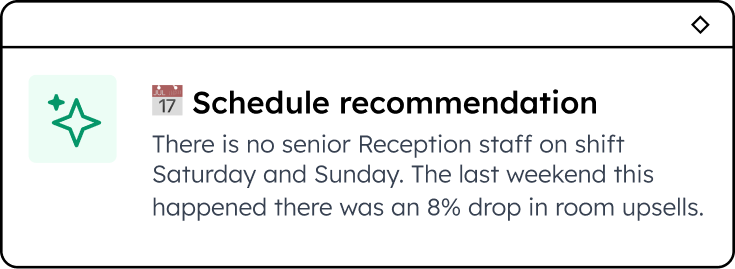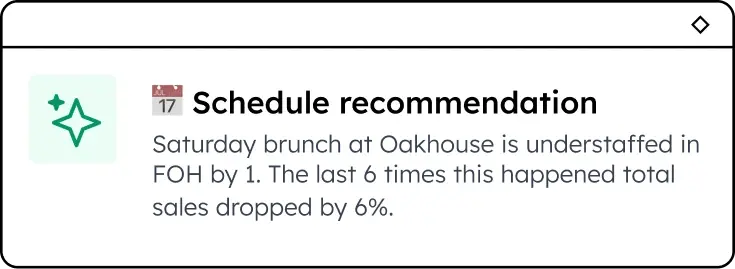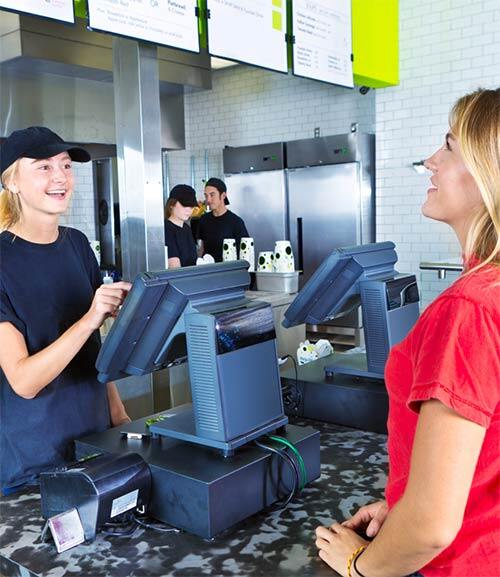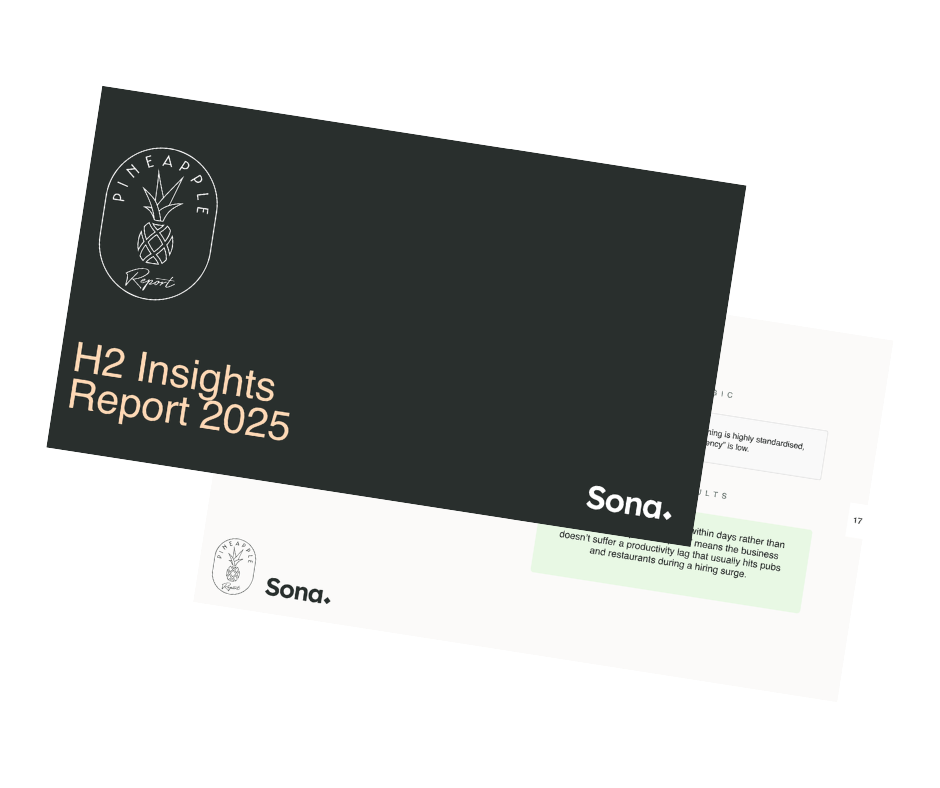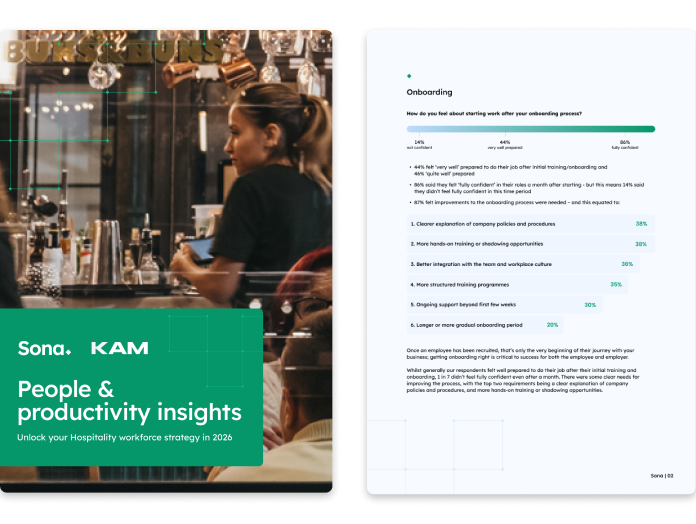Sona and KAM release new insights: Poor systems and processes cost the Hospitality sector £2.7 Billion per year
3 minute read
A new nationwide study by KAM and Sona has uncovered a staggering productivity crisis in the UK hospitality sector, driven by outdated systems and inefficient processes.
The Hospitality Employee Survey, which gathered insights from 300 frontline workers across pubs, bars and restaurants, reveals that poor systems and processes are costing the industry almost £2.7 billion a year — the equivalent of one million full-time employees.
According to the research, Hospitality employees ‘waste’ an average of 1.2 hours per week due to inefficient systems such as manual paperwork, poor scheduling, chasing down information and repeating tasks. This equates to approximately 4% of their working time lost — or 4.2 million hours ‘wasted’ weekly across the UK’s 3.5 million hospitality employees.
At the current minimum wage of £12.21, this translates to £51 million per week in lost productivity, and almost £2.7 billion per year.
The survey also highlights a direct link between poor systems and staff retention. Half of those surveyed admitted to having considered leaving their job due to frustrating processes — with 13% saying it happens frequently. Given that Hospitality turnover rates are high and the cost of replacing a team member can reach nine months’ of salary according to UKHospitality, even a small reduction in churn could save the industry hundreds of millions annually.
The data also points out that operational inefficiencies are impacting the guest experience. 62% of employees say poor or frustrating systems or processes have negatively affected customer service in their venue, and 34% report tech failures disrupting service at least once a month. Additionally, 45% say they are short staffed at least once a month and it affects the level of customer service, while 40% say it impacts their job satisfaction.
The survey reveals widespread dissatisfaction with shift scheduling, highlighting the important role that smart scheduling solutions can play. For example:
- Over half (52%) of employees receive their rota less than six days in advance, with 15% getting it less than two days before
- 27% say their schedule is then frequently or very frequently changed after publication
- Only 54% find it easy to request shift changes, get cover or swap a shift and 80% must contact a manager directly to do so
- 30% feel their availability, preferences and work-life balance aren’t considered in scheduling decisions
Employees believe the solution is clear: better systems mean better performance. On average, respondents said they could be 19% more productive each week if their company invested in improved processes and better systems.
“Hospitality teams are some of the most resourceful and resilient people out there, but this research shows just how much potential we’re wasting by not giving them the right tools. Every hour lost to clunky systems or chasing information is an hour that could be spent delighting guests or developing skills.
In such a challenging trading climate, improving productivity isn’t just about cutting costs, it’s about making life easier for our teams and giving them the support they deserve to do their best work. Ultimately an outstanding employee experience is what will deliver an outstanding guest experience.”
Katy Moses, Founder and Managing Director at KAM
Ben Dixon, CTO and Co-Founder of Sona, said: "This research shines a spotlight on a challenge we see every day – the immense operational and human cost of outdated technology. The £2.7 billion figure is startling, but the story behind it of frustrated employees, disrupted service and a revolving door of staff is what truly needs our attention.
“Hospitality is fundamentally a people-centric industry, yet the technology that underpins its ability to empower failed its most valuable asset – its frontline teams - has lagged. The findings that employees are losing hours to manual processes and that half have considered leaving due to frustrating systems should be a major incentive to reconsider the status quo.”
About the Research
The Hospitality Employee Survey was conducted by KAM in partnership with Sona, surveying 300 Hospitality professionals across the UK in roles ranging from front-of-house and kitchen staff to hotel and management positions.
Enjoyed this article? Let's stay in touch 👋
If you liked this article, why not subscribe to our newsletter to get the latest news and views delivered straight to your inbox?

